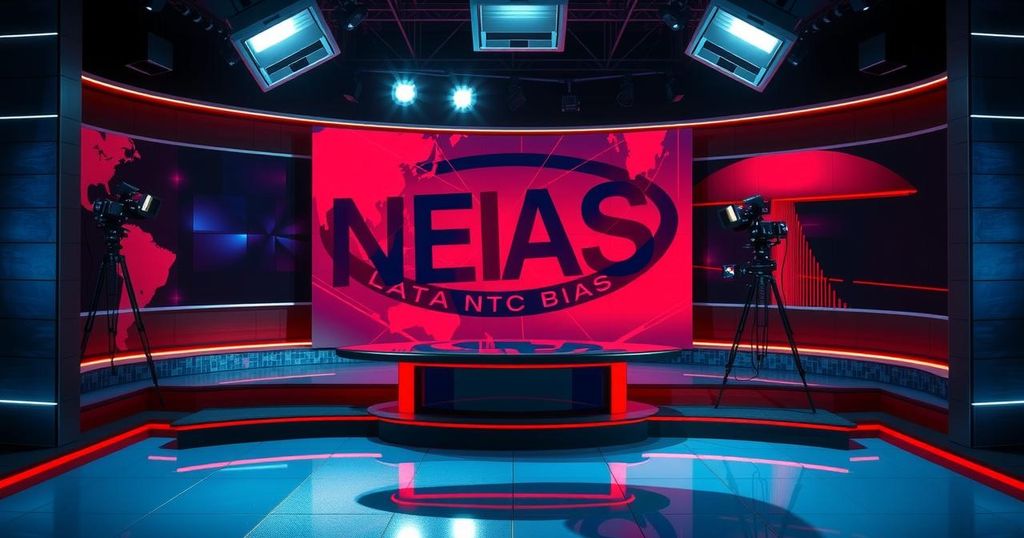World news
AMERICA, ASIA, AURORA, BARACK OBAMA, BOASBERG, BRAZIL, CBS, COLORADO, EL SALVADOR, GEORGE STEPHANOPOULOS, GOOD MORNING AMERICA, JAMES BOASBERG, JUSTICE DEPARTMENT, LAW & ORDER, LEGAL ISSUES, MARTHA RADDATZ, MEDIA CRITICISM, NBC NEWS, NORTH AMERICA, PHILIPPINES, POLITICS, SOUTH AMERICA, SUPREME COURT RULING, TREN DE ARAGUA, U.S. ELECTIONS, UNITED STATES
Lena Nguyen
0 Comments
Examining Broadcast Bias: Networks’ Coverage of Venezuelan Gangs
Major networks exhibit bias by portraying Venezuelan gang members as victims of deportation policies under President Trump, neglecting their criminal actions. Coverage often draws historical comparisons but fails to mention the substantial decrease in illegal immigration attributable to Trump’s policies, highlighting a trend of systemic negativity towards the former president while providing a more favorable narrative for President Biden.
In a recent analysis, it was observed that major networks like ABC, CBS, and NBC displayed a notable bias towards Venezuelan gang members, mirroring their previous coverage of pro-Hamas individuals. The portrayal of foreign individuals facing deportation under the Trump Administration leaned heavily towards victimization, disregarding their criminal activities. All references to judiciary actions reflect a narrative favoring these gangs, as seen in the networks’ framing of District Judge James Boasberg’s reversal of deportation policies without adequately disclosing his prior appointment by President Obama.
The networks are not shy to report on litigation that obstructs Trump’s deportation actions, citing instances such as the tracking of rulings by federal judges. One notable example includes ABC’s reporting on the Venezuelan gang Tren de Aragua, which sparked a defensive exchange between the network and political figures regarding the implications of their criminal activity. This defensive tone reflects a broader reluctance to confront the seriousness of gang control over neighborhoods.
Coverage also featured comparisons of Trump’s deportation policies to historical injustices, such as the internment of Japanese-Americans during World War II, undermining the conversation surrounding violent crime perpetuated by illegal immigrants. Critics assert that this misguided focus detracts from the real victims of violence.
Furthermore, networks like CBS invoked the plight of Irish Americans to draw parallels with current events, inaccurately attributing their oppression to modern deportation policies while neglecting the context of the narrative. Emphasis on legal support for these gang members, such as potential lawsuits from civil liberties groups, detracts from the broader issues at stake.
Critically, the media fails to highlight the significant reductions in illegal immigration during the Trump Administration, opting instead for narratives that seem to perpetuate a sense of crisis under his governance. This trend demonstrates media inclination to frame coverage in a manner that induces negativity toward Trump while contrasting it with a more favorable depiction of President Biden, despite his actions which result in increased illegal immigration. The disparity in tone reveals a systematic bias that shapes the ongoing discourse surrounding immigration policies.
In summary, recent coverage from major news networks shows a pronounced bias, favoring narratives that depict Venezuelan gang members as victims alongside a neglect of the underlying criminality associated with their actions. The tendency to draw historical comparisons and the framing of political figures reflects a struggle to objectively report on immigration policies. Furthermore, the positive achievements relating to reduced illegal immigration during the Trump Administration are consistently ignored, underscoring a media landscape that appears more concerned with casting negativity on Trump than providing a balanced viewpoint.
Original Source: www.foxnews.com




Post Comment